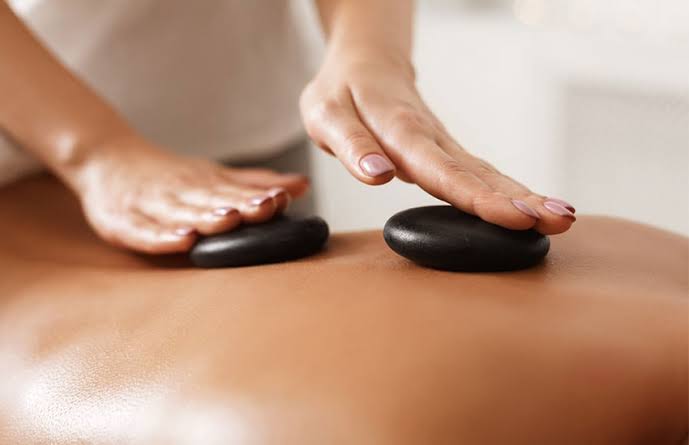Massage therapy performed by a skilled and qualified therapist can reduce stress, induce relaxation and as a result enhance feelings of well being. A good massage can stimulate the nerve endings, release endorphins (the feel good hormones) and consequently inhibit the stress hormones cortisol and adrenaline. Below is a list of related health problems that can be eased or managed through massage. Read on about ten stress related health problems, that massage can help.

Heart Disease
Maintaining a healthy blood pressure can contribute to lowering the odds of having a heart attack. A number of long-term studies have shown that a consistent massage program can decrease blood pressure. Massage therapy releases contracted muscles and pushes venous blood towards the heart, as a result easing the strain on the heart. In this way, massage offers a drug-free, non-invasive and holistic approach for allowing the body to heal itself. [1]
Asthma
Massage therapy likewise brings relief to some people with asthma. A massage therapist will work on the neck, chest and ribcage to release tension in the muscles that facilitate breathing. Additionally, massage therapy may alleviate some of the anxiety you feel about having breathing problems. [2]
Diabetes
I recently wrote a blog about the effects of massage on diabetic patients. Massage can improve the blood circulation in the body. It can also help reduce the ill effects developed due to diabetes such as hardening of arteries. Massage is a great therapy for relaxing and reducing the stress. Any form of stress or mental fatigue can be harmful to the diabetic patient as it increases their blood glucose level. [3]

Stress-related Headaches
Another of the ten stress related health problems that massage can help with is headaches. Massage therapy is ideal for stress induced headaches. Tension in the muscle can cause trigger points to become active which refers pain through the body. The neck, shoulder, jaw and skull muscles for instance, can all lead to headache type pain.[4]
Depression and Anxiety
The best evidence for the benefits of massage exists around the management of depression and anxiety. A 60-minute massage can lower cortisol, the stress hormone, by an average of 30 percent. And when cortisol levels decline, serotonin — one of the body’s anti-pain mechanisms — increases by an average of 28 percent after receiving a massage. Therefore by lowering cortisol and increasing serotonin, you are boosting your body’s ability to fight off pain, anxiety and feelings of sadness. Massage can generate confidence and enhance self-image and self-worth.[5]

Gastrointestinal Problems
The gastrointestinal tract (GIT), is embedded with its own enteric nervous system, also known as the second brain. This complex neuronal network is responsible for regulating basic digestive functions. These enable us to breakdown and absorb nutrients from our food, move food through the GIT, and remove waste products through the bowel. The brain communicates with the guts nervous system via a major neuroendocrine system that controls the body’s reaction to stress. Managing your stress levels can in-turn help regulate gut problems but also help manage mood, memory, headaches from gastrointestinal problems, and depression and anxiety. [6]
Sleep Dysfunction
I regularly promote the need for quality sleep and how massage can aid sleep patterns. Above all adequate sleep is necessary for healthy functioning. Quality sleep is vital to health and wellness. Many experience sleep issues that affect their health, consequently leading to low work performance, slowed reaction time, obesity, higher risk of long-term disease, and substance abuse.[7]
Back Pain
There are good links between stress and lower back pain. For example, if the back pain is a musculoskeletal issue, stress and how you respond to pain can make back pain worse. When physical movement is limited, this can cause psychological distress, and the psychological distress can, in return, worsen the pain. Personal health beliefs and coping strategies can influence both your level of distress and course of the pain. [8]
Autoimmune Disease
A new study has raised the possibility that stress causes autoimmune disease, such as lupus or rheumatoid arthritis. A higher incidence of autoimmune diseases has been found among people diagnosed with stress-related disorders, such as PTSD. Massage cannot cure autoimmune disease but can aid in the management of pain resulting from these diseases. And of course help reduce the stress that my be the cause or the result of autoimmune disease and stress-related disorders.


